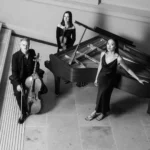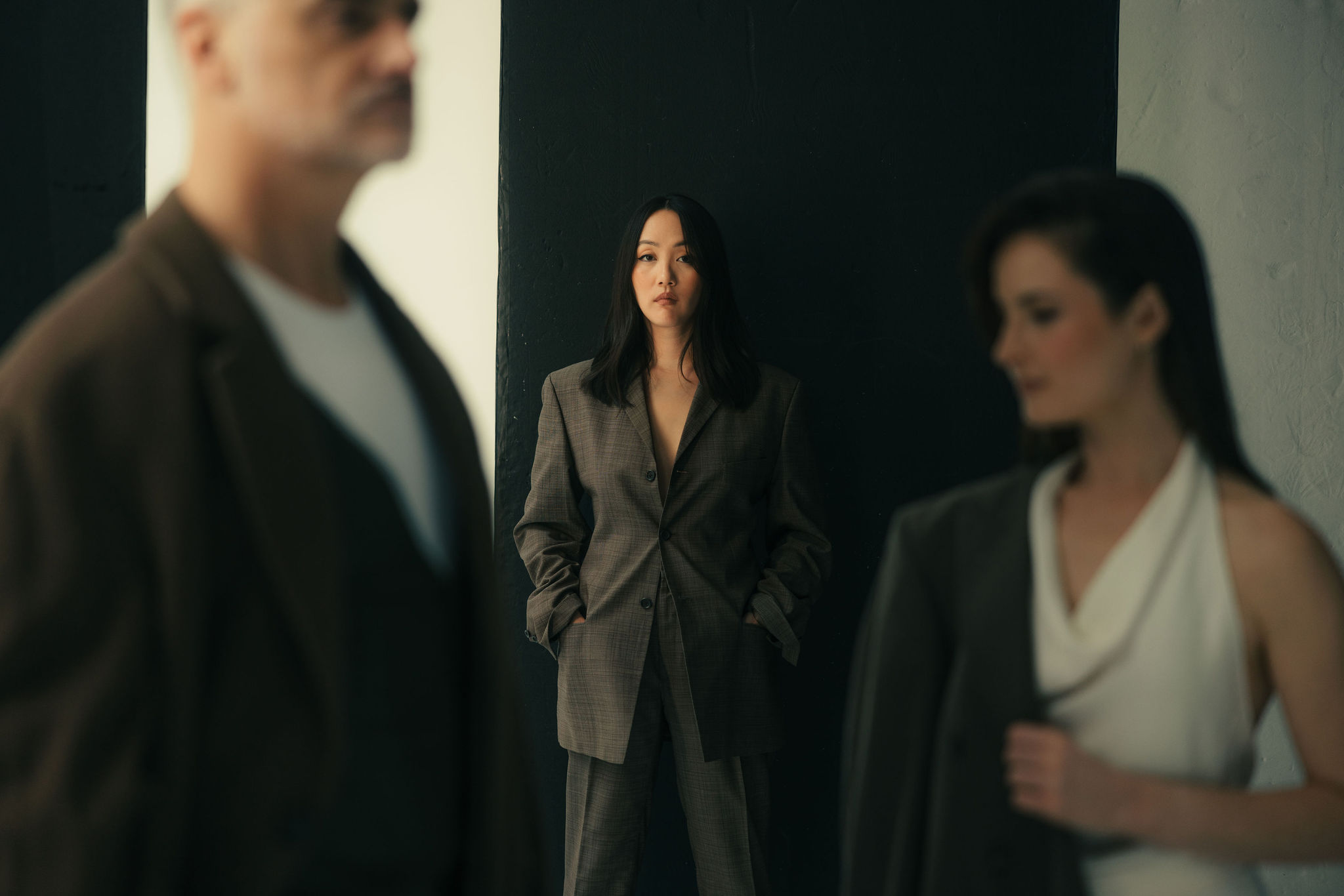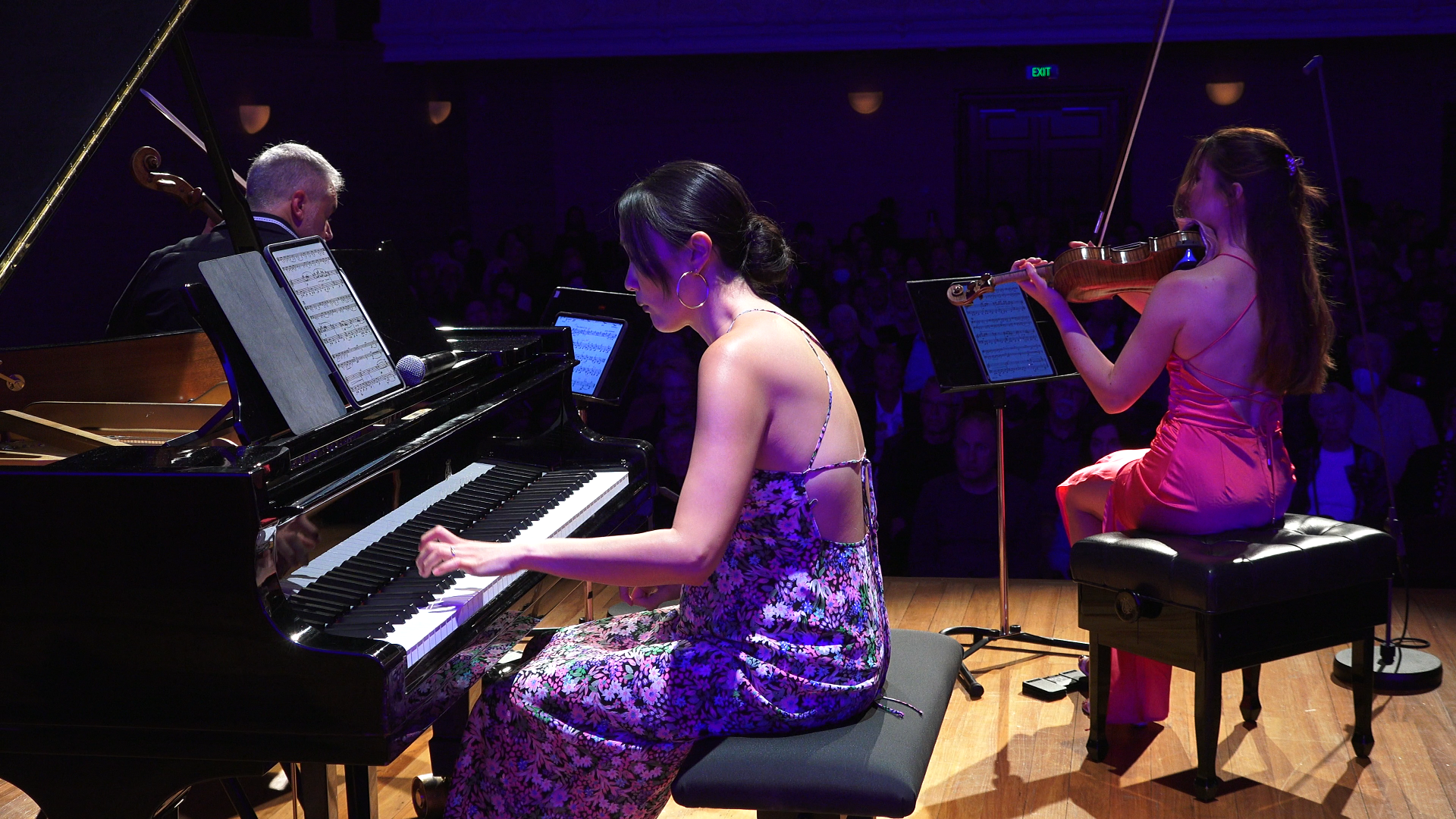Originally composed for flute, cello, and piano, find out about the influences that on this jazzy trio by Nikolai Kapustin, in our programme notes, written by Charlotte Wilson.
“I was never a jazz musician. I never tried to be a real jazz pianist, but I had to do it because of the composing. I’m not interested in improvisation – and what is a jazz musician without improvisation? All my improvisations are written, and they became much better; it improved them.”
The enduringly popular trio by the great Ukrainian composer Nikolai Kapustin, pioneer of Soviet jazz. Born in Horlivka in the Donetsk region, he was clearly a piano prodigy from a young age, composing his first sonata when he was 13 and learning the great classical canon from JS Bach on. Chopin, Ravel, Prokofiev, and Scriabin always remained special loves, but he also grew up with jazz, which had started to trickle into the USSR in the 1930s. Shostakovich immediately latched on to it, so did Prokofiev, and even the Soviet government was intrigued, contrary to their usual attitude to cultural influences from the west. They demanded that more be done to reflect this interesting new genre and by the time that Kapustin was a teenager there was a State Jazz Orchestra in Moscow, and a Big Band, and the style was well established – even if in a peculiarly watered-down Soviet version that sounds naïve, now, and makes you smile.
Kapustin played in both bands and over the course of the 1950s began acquiring a reputation as a jazz pianist, arranger and composer, devoting himself almost exclusively to piano and developing a style that fuses classical approach to form with jazz approach to harmony and rhythm, characterised by an unparalleled richness and zest all his own. It sounds improvised but is not – as he said himself, it is better. He also had a jazz quintet, playing around Moscow’s fanciest restaurants, eagerly seizing on all the new music that was beginning to come in from America – Oscar Peterson, Art Tatum, Herbie Hancock, Bill Evans. By the time the wall came down it was not so much a question of Russia suddenly being flooded with jazz in real time but of the western world suddenly discovering him.
This trio, originally with flute, is his first of his small foray into chamber music (at the age of 61!) and is Kapustin at his best. The first movement is energetic jazz after a striking opening: the second a languid andante, ending on a joyous finale and always giving every instrument its chance to shine. Close your eyes so you can’t see the trio reading (rather difficult) music, and as always with Kapustin, you would think you were hearing a well-drilled jazz trio riffing on some favourite numbers of their own.
Kapustin’s Trio Op.86 is part of our 2022 LEGACY 1 programme.
To find out what’s coming up near you, visit our upcoming events.




